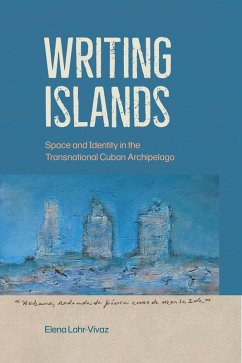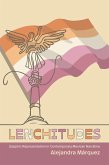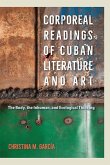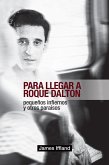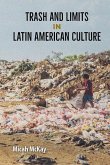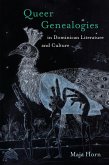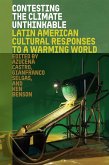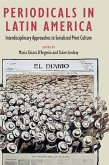How
contemporary Cuban writers build transnational communities
In Writing Islands, Elena Lahr-Vivaz employs methods from archipelagic studies to analyze works of contemporary Cuban writers on the island alongside those in exile. Offering a new lens to explore the multiplicity of Cuban space and identity, she argues that these writers approach their nation as part of a larger, transnational network of islands. Introducing the term arcubiélago to describe the spaces created by Cuban writers, both on the ground and in print, Lahr-Vivaz illuminates how transnational communities are forged and how they function across space and time.
Lahr-Vivaz considers how poets, novelists, and essayists of the 1990s and 2000s built interconnected communities of readers through blogs, state-sponsored book fairs, informal methods of book circulation, and intertextual dialogues. Book chapters offer in-depth analyses of the works of writers as different as Reina María Rodríguez, known for lyrical poetry, and Zoé Valdés, known for strident critiques of Fidel Castro. Incorporating insights from on-site interviews in Cuba, Spain, and the United States, Lahr-Vivaz analyzes how writers maintained connections materially, through the distribution of works, and metaphorically, as their texts bridge spaces separated by geopolitics.
Through a decolonizing methodology that resists limiting Cuba to a distinct geographic space, Writing Islands investigates the nuances of Cuban identity, the creation of alternate spaces of identity, the potential of the Internet for artistic expression, and the transnational bonds that join far-flung communities.
Publication of this work made possible by a Sustaining the Humanities through the American Rescue Plan grant from the National Endowment for the Humanities.
In Writing Islands, Elena Lahr-Vivaz employs methods from archipelagic studies to analyze works of contemporary Cuban writers on the island alongside those in exile. Offering a new lens to explore the multiplicity of Cuban space and identity, she argues that these writers approach their nation as part of a larger, transnational network of islands. Introducing the term arcubiélago to describe the spaces created by Cuban writers, both on the ground and in print, Lahr-Vivaz illuminates how transnational communities are forged and how they function across space and time.
Lahr-Vivaz considers how poets, novelists, and essayists of the 1990s and 2000s built interconnected communities of readers through blogs, state-sponsored book fairs, informal methods of book circulation, and intertextual dialogues. Book chapters offer in-depth analyses of the works of writers as different as Reina María Rodríguez, known for lyrical poetry, and Zoé Valdés, known for strident critiques of Fidel Castro. Incorporating insights from on-site interviews in Cuba, Spain, and the United States, Lahr-Vivaz analyzes how writers maintained connections materially, through the distribution of works, and metaphorically, as their texts bridge spaces separated by geopolitics.
Through a decolonizing methodology that resists limiting Cuba to a distinct geographic space, Writing Islands investigates the nuances of Cuban identity, the creation of alternate spaces of identity, the potential of the Internet for artistic expression, and the transnational bonds that join far-flung communities.
Publication of this work made possible by a Sustaining the Humanities through the American Rescue Plan grant from the National Endowment for the Humanities.
Dieser Download kann aus rechtlichen Gründen nur mit Rechnungsadresse in A, D ausgeliefert werden.

